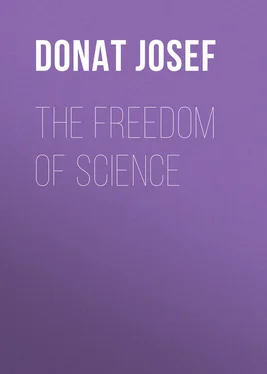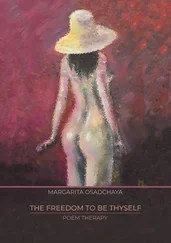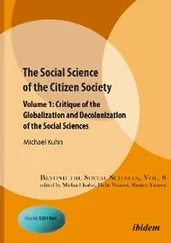Josef Donat - The Freedom of Science
Здесь есть возможность читать онлайн «Josef Donat - The Freedom of Science» — ознакомительный отрывок электронной книги совершенно бесплатно, а после прочтения отрывка купить полную версию. В некоторых случаях можно слушать аудио, скачать через торрент в формате fb2 и присутствует краткое содержание. Жанр: foreign_antique, foreign_prose, на английском языке. Описание произведения, (предисловие) а так же отзывы посетителей доступны на портале библиотеки ЛибКат.
- Название:The Freedom of Science
- Автор:
- Жанр:
- Год:неизвестен
- ISBN:нет данных
- Рейтинг книги:4 / 5. Голосов: 1
-
Избранное:Добавить в избранное
- Отзывы:
-
Ваша оценка:
- 80
- 1
- 2
- 3
- 4
- 5
The Freedom of Science: краткое содержание, описание и аннотация
Предлагаем к чтению аннотацию, описание, краткое содержание или предисловие (зависит от того, что написал сам автор книги «The Freedom of Science»). Если вы не нашли необходимую информацию о книге — напишите в комментариях, мы постараемся отыскать её.
The Freedom of Science — читать онлайн ознакомительный отрывок
Ниже представлен текст книги, разбитый по страницам. Система сохранения места последней прочитанной страницы, позволяет с удобством читать онлайн бесплатно книгу «The Freedom of Science», без необходимости каждый раз заново искать на чём Вы остановились. Поставьте закладку, и сможете в любой момент перейти на страницу, на которой закончили чтение.
Интервал:
Закладка:
Such is the Christian view of man and his thought. Here, then, there is but one question to solve: Are the external restraints imposed on me in my investigation and teaching against my nature; against the right of my mind to truth; against my position in human society? If so, then I reject them, because they mean serfdom, not duty; unjust bonds, not natural restraint. But if not, then I do not refuse them my submission. Freedom I want, but only the freedom of man.
Here we pause. Suffice it at present to have formulated the question; we shall return to this topic later and discuss it at greater length.
The Modern Idea of Freedom
The Christian view of man and his freedom, which to past ages appeared self-evident, has grown obscure to many minds, and given place to another, a more modern view. 1 1 Whenever we use here the word “modern,” we do not take it in the sense of “present,” – the Christian view of the world is also a present one, and is still of the utmost importance, – but in the sense of “new” in contrast to the time-honoured and inherited.
For the modern man, freedom, especially freedom of intellectual life, means independence from external ties, from all authority , or, to express it positively, absolute right of self-determination, autonomy . He does not recognize any law or rule which he has not imposed upon himself. In civil life, of course, it is a principle that man must submit to external, legal restraint in many things that do not directly concern his own person, but only so far as is necessary in order that others, too, may enjoy the same freedom; but also here every citizen must be able to share in the legislation, according to the rules of constitutional or republican government. But he must be free from every external restraint in whatever touches the core of his personality, his feeling, desire, thought, and the expression of his thought.
It should now be clear, from what has been said, what is meant by freedom of science . It means independence from every external authority and restraint in research and teaching, the unhindered development and assertion of one's own intellectual personality. Man must let himself be directed only by his own judgment and his instinct for the truth, or his personal need, without heeding dogmas, Church laws, tradition, or any other external norm whatsoever. This is particularly true in the domain of philosophy and religion , in questions regarding the world and life, and in fundamental social questions. This is principally, and almost exclusively, the field in which an authoritative influence of the Church, or state, or society in general, is to be feared. Hence the importance of the question of the freedom of science in this field.
This is also the manner in which the advocates of modern freedom of science unanimously describe it.
For the academic teacher, says G. Kaufmann , there are “strictly speaking only the barriers drawn by his own instinct for the truth. It is in this sense that we demand freedom of science to-day for the university teacher. The freedom of the scientist and of the academic teacher must not be limited by patented truth, nor by faint-hearted consideration” (Die Lehrfreiheit an den deutschen Universitaeten im neunzehnten Jahrhundert (1898), 36). The first resolution proposed at the Second Conference of German University Teachers , at Jena, in September, 1908, was this: “The purpose of scientific research, and the communication of its results, demand that it be independent of every consideration foreign to scientific method itself.” Of this resolution we have from another source the following explanation: “Therefore, it should be independent especially of tradition and the prejudices of the masses, independent of authority and social bodies, independent of party interest.” (This was the addition to the thesis as originally formulated by Prof. von Amira . Beilage der Muenchener Neuesten Nachrichten, July 9, 1908.) And Prof. F. Paulsen writes: “No thought can be commanded or forbidden the academic teacher or his audience” (Die deutschen Universitaeten und das Universitaets-studium, 1902, 288).
A. Harnack likewise teaches that “In regard to research and knowledge there must be unlimited freedom,” especially in matters of religion. Here “man must fully understand his own innermost being; the soul must recognize its own needs and the indicated way to their satisfaction. This it can do only when it is entirely free.” “The fear that thereby the door to serious error is thrown open should not in the least deter it, for the most serious error of all is the opinion that man should not enjoy perfect freedom in the determination of his state”(Neue Freie Presse, 7 Juni, 1908).
The same demands are made by free-thinkers, who are always and everywhere in favor of free science. The International Congress of Free-thinkers , held at Rome in June, 1904, thus defines free-thought: “Since free-thought cannot concede to any authority whatever the right to oppose human reason, or even to supersede it, it demands that its advocates reject directly not only any compulsory belief, but also every authority that tries to enforce its dogmas, even though such an authority be based on revelation, or though it command obedience to dogmas or a-priori principles of philosophy, or to the decisions of public authority or the vote of a majority.” – We shall have frequent occasion to speak of this freedom in these pages.
Hence it is easily seen that this view differs from the one we considered before. Freedom from all external restraint has superseded freedom from unjust restraint. The presumption has found acceptance that every interference by authority is unjust, a violation of the natural rights of man and his thought. On what is this presumption based? In other words: What are the philosophical premises of modern freedom of science? We shall be occupied with this question now for some time. For only after we have attentively considered it, can we gain an intelligent idea of the nature of this freedom, of its methods, and of the justice of its claims. Advocates of this view not infrequently think they have exhausted its meaning when they have protested against ecclesiastical encroachments, when they have held forth against Syllabus and Index. Of the deeper thoughts it contains they have scarcely any idea.
The Humanitarian View of the World
We may distinguish a twofold basis for this view, a general and a particular one. The latter, which is connected with the former, is subjectivism in thought. The former, the more general , at the same time the real basis of the modern freedom of science , is that particular view of man and his position in the world, which we may call the theory of humanitarianism. We are familiar with this word – it has its history. The word of itself conveys a good meaning: it means human nature and dignity, thought and desire worthy of man, nobility of culture. During the Renaissance the so-called “humanists” identified culture with knowledge of the ancient classical literature. Many of them, however, added to the admiration of classical literature also preference for pagan tastes, to the contempt of the Christian spirit. Since that time the word humanitarian has never lost its unchristian sense; it has ever been made the motto of men who emancipated themselves from God and Christianity. Hence it is extensively the motto of our times.
It has changed the position of man. It has forgotten that man is a created, limited, even a fallen being, withal destined for eternal existence. To it man is everything; man left to himself and to his life in this world, severed from God and his eternal destiny, an absolute, purely worldly being . No longer does he look up to Heaven, no longer does he get from above his laws, his hope for help, and strength, and eternal life. He is his own and only end: he and his earthly happiness and advancement. In himself alone he sees the source of his strength, in himself he finds his law, to himself alone is he responsible, the inherited corruption of his nature he has forgotten. What God once was to our fathers – the end and rule of their life – that now is Man to their sons. The anthropocentric has succeeded the theocentric view of the world. Diis extinctis successit humanitas (Man has succeeded the fallen gods). “Out of the corrupted nations and decaying religions let there arise a more beautiful humanity!” is the radical cry of this humanitarian religion.
Читать дальшеИнтервал:
Закладка:
Похожие книги на «The Freedom of Science»
Представляем Вашему вниманию похожие книги на «The Freedom of Science» списком для выбора. Мы отобрали схожую по названию и смыслу литературу в надежде предоставить читателям больше вариантов отыскать новые, интересные, ещё непрочитанные произведения.
Обсуждение, отзывы о книге «The Freedom of Science» и просто собственные мнения читателей. Оставьте ваши комментарии, напишите, что Вы думаете о произведении, его смысле или главных героях. Укажите что конкретно понравилось, а что нет, и почему Вы так считаете.












